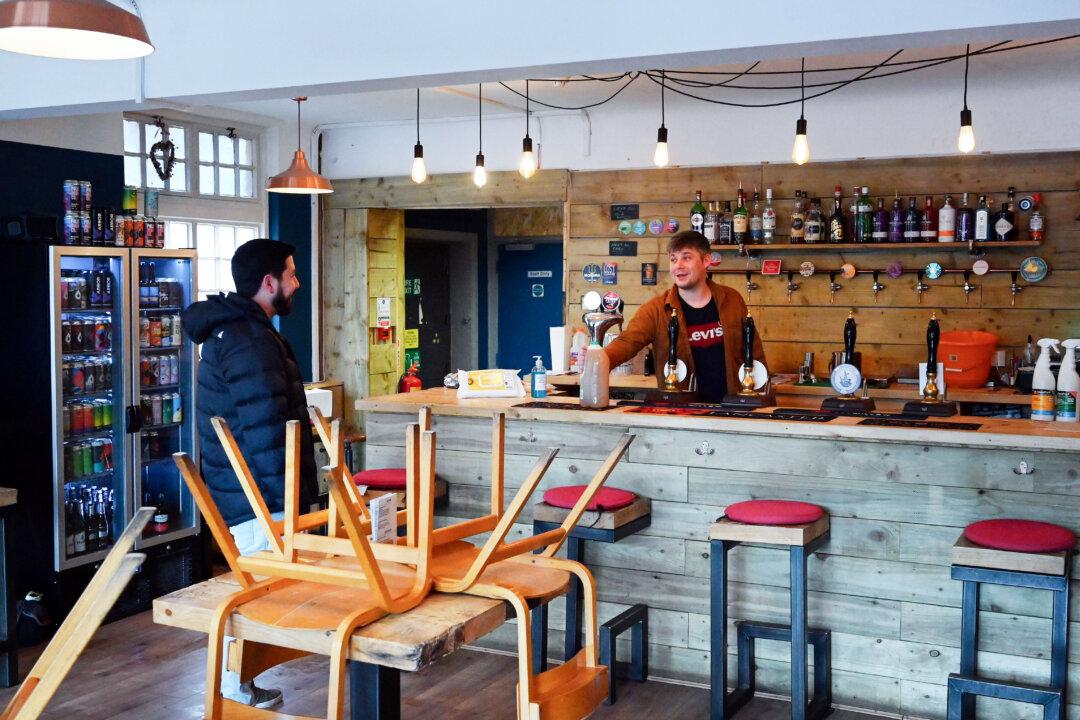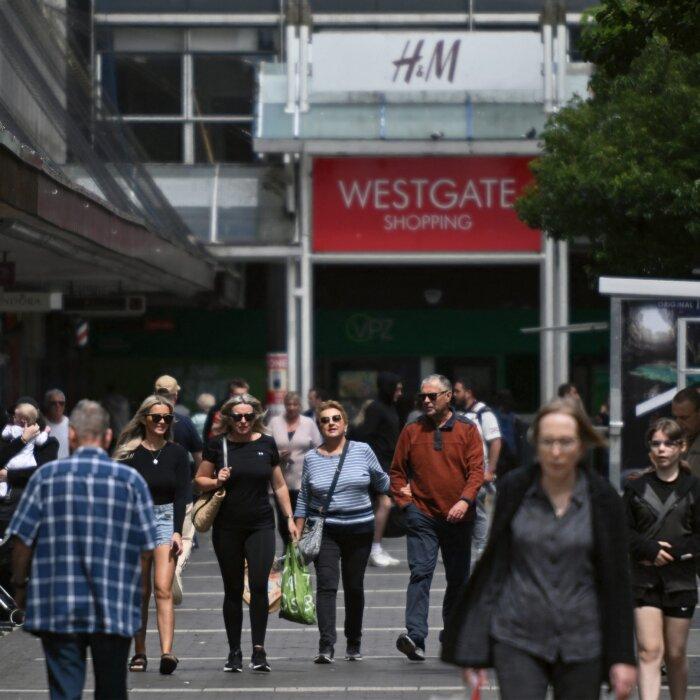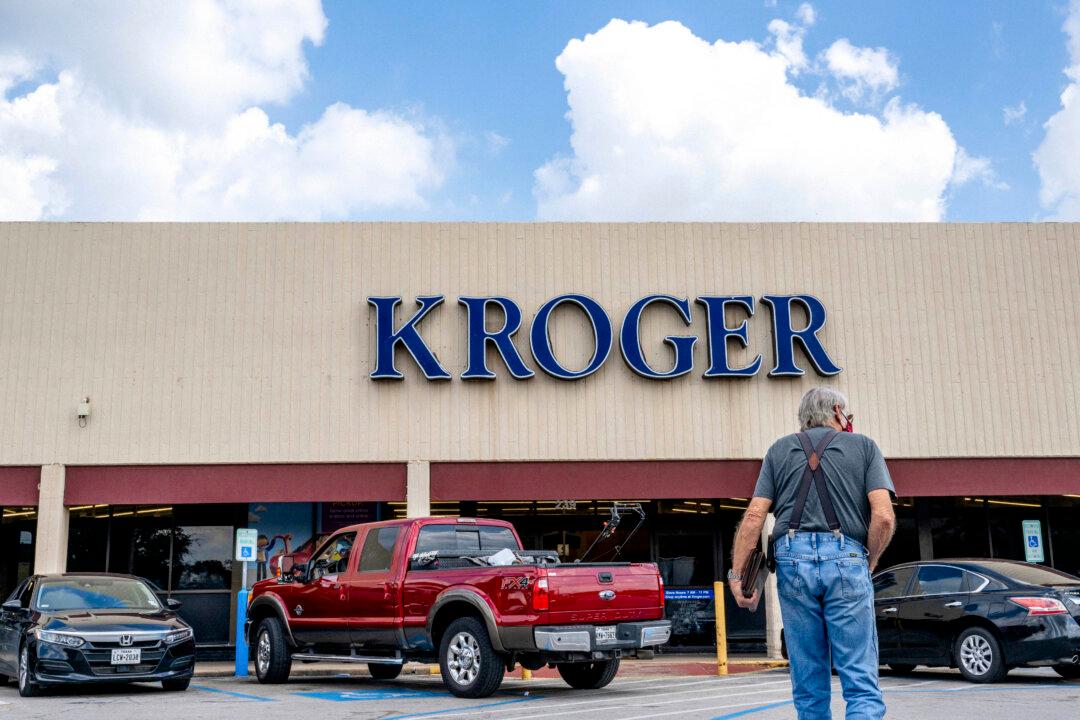As rising costs threaten the survival of pubs across the UK, some are adapting through alternative models like micropubs and community ownership.
A new barrage of cost increases coming into force in April, such as higher national insurance contributions and an increase in the minimum wage, risks driving more pubs, often smaller and independent, out of business.
The British Beer and Pub Association (BBPA) argues that the “consumer demand is there,” but industry campaigners say that the habits of pub-goers have changed and evolved.
Alison Boutoille, founder of the CityStack London Pub Collection, told The Epoch Times that since the COVID-19 pandemic, more people prefer to have a drink at home and younger generations drink less.
“People can’t afford to go out as much as they used to before. Younger generations are really looking for sort of unique experience, like karaoke night, pub quizzes, or open mics,” she said.
Pubs also face seasonal slumps, particularly during Dry January, when many people abstain from alcohol, and from the growing sober movement, which has fuelled demand for low-alcohol and alcohol-free options.
To counteract this, many pubs have expanded their offerings beyond just drinks, introducing food menus to attract a broader customer base. This shift brings its own challenges, including increased operational costs, higher food prices, and additional staff to manage food service.
Alternative Pubs
Driven by the changing pressures and demands of the sector, alternative pub models, such as micropubs and community-owned pubs, have gained ground in the UK.Micropubs are small, independent pubs that focus on serving high-quality beer and fostering social interaction.
Typically set up in compact spaces like former shops, micropubs often avoid playing loud music, TVs, and gambling machines, encouraging social engagement. According to Ainsworth, their success lies in low overhead costs and a focus on community.
“They can be run by one or two people. The atmosphere in them is very traditional. Because micropubs are small, you can’t really avoid interacting with other people. They are very social places. They have increased enormously in numbers over the last 10 years,” he said.
The first micropub, The Butchers Arms, opened in 2005 in the Kent village of Herne.

Founded by Martyn Hillier, who was last year awarded an MBE for his services to hospitality and for founding the Micropub Association, the establishment fits 12 seated customers.
Hillier told The Epoch Times that micropubs avoid losses by limiting their hours and staying under the £90,000 VAT threshold, which keeps costs down.
Community-Owned
Another growing model is community-owned pubs, such as The Bevy in Brighton and The George in Wickham Market. They are owned and run by local residents, usually as a cooperative.Instead of making profits for a private owner, the money goes back into the pub or community projects. Many also provide extra services, like a village shop or post office.
According to the Plunkett Foundation, there are over 180 community-owned pubs operating across the UK.
Relief Schemes
Many micropubs qualify for 100 percent relief under the Small Business Rate Relief scheme, helping them keep prices low and stay profitable.In contrast, bigger pubs with higher rateable values get less help from business rates relief.
In the October Budget, Retail, Hospitality, and Leisure Relief for pubs was cut from 75 to 40 percent for the 2025–2026 fiscal year, with a cap of £110,000 per business, which affects larger chains with many locations.
Industry leaders argue that while pub chains like Greene King or JD Wetherspoon face higher taxes, they have greater financial resilience than independent pubs.
Staying Afloat
Unlike many traditional pubs, micropubs avoid the high costs associated with food service, explained Hillier.“You often hear that if you don’t serve food, you won’t make a living. But if you do, you need a chef, a kitchen, waitstaff, and more space. When you’re busy, you’re making money, but if business drops below 50 percent, you start losing money,” he said.
Micropubs are often designed to enhance social engagement. In Hillier’s venue all chairs are arranged in way that customers always face each other and are naturally drawn into conversation.

Nikos Amplianitis, landlord of the Cuckoo Inn in Hamptworth, Wiltshire, told The Epoch Times that while food service has become an essential part of the pub experience, it can be beneficial if managed well.
“The food element was introduced to pubs many years ago. That’s not necessarily a bad thing, as long as you make it work and it keeps the pub going and people socialising,” he said.
However, Amplianitis acknowledged the growing challenges of rising costs, particularly from suppliers. “I see price increases every year, and everyone’s set to raise prices again between February and March. The issue is that we can’t keep increasing our prices every year, even though our suppliers do,” he explained.
Despite these challenges, Amplianitis doesn’t believe pubs are becoming unsustainable but admits the pressure is mounting.
“It’s definitely more difficult. If you’re extremely busy, you’ll make a decent living, but that’s about it. If you have even a couple of quiet months, it can seriously impact your revenues and wipe out your profits for the year. You’re basically forced to be very busy every single day just to stay afloat,” he said.
However, Ainsworth said that “fine words don’t butter any parsnips,” and called for more meaningful action from Westminster.
Social Centres
Campaigners have long stressed the value of pubs as community hubs. The social role of pubs is irreplaceable in rural areas, where options may be limited, said Amplianitis.“It’s not just about the alcohol; it’s about people meeting, laughing, sharing thoughts, and having fun. In rural areas like ours, keeping pubs open is crucial for community life,” he said.
Ainsworth noted that many pubs go beyond being just social gathering spots by hosting events like charity fundraisers, music gigs, and community group meetings. However, not all pubs succeed in fulfilling this social role.
Ainsworth said that pubs with erratic opening hours or those run as hobbies by landlords who lack social skills often fail to engage the community.







